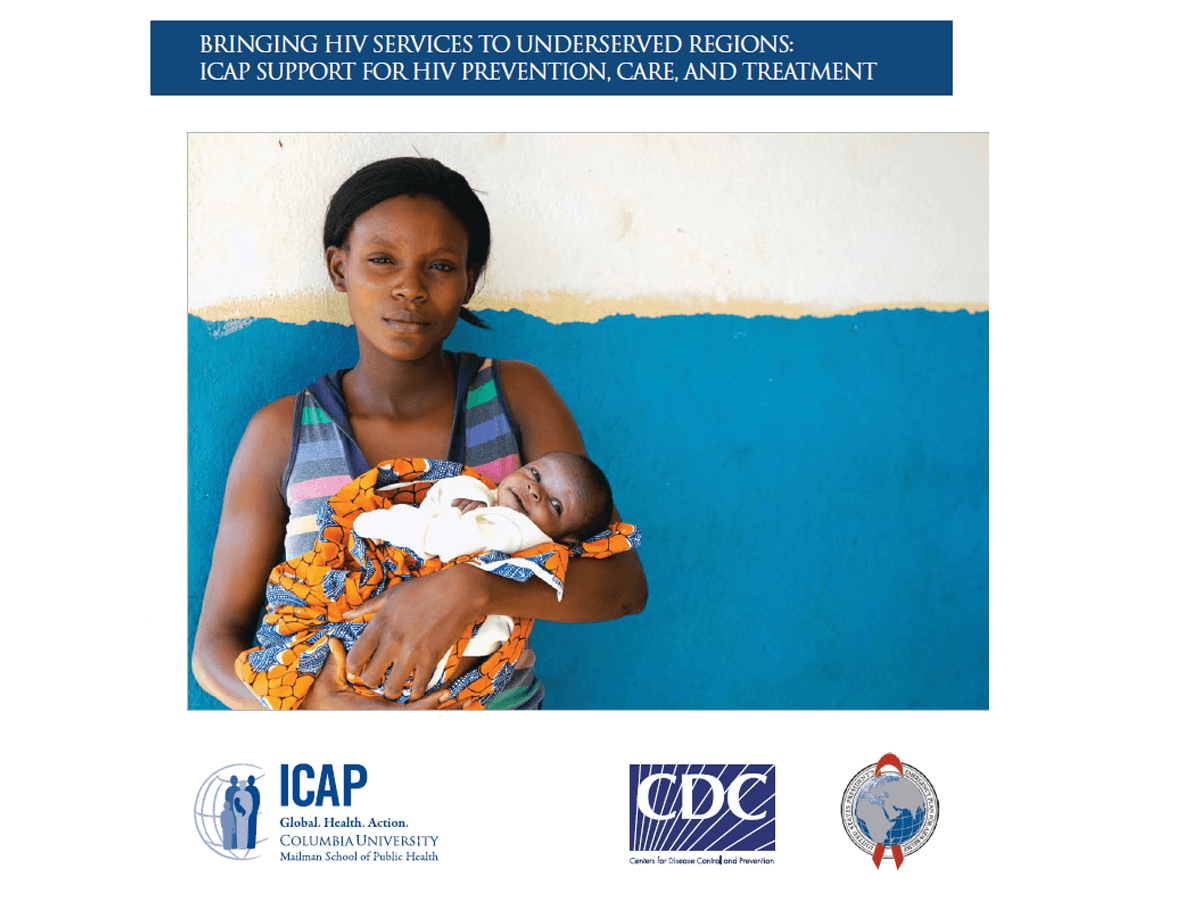Columbia University’s role in implementing PEPFAR began in 2003, when it received funding from the Global AIDS Program of the Centers for Disease Control and Prevention (CDC) under the University Technical Assistance Projects (UTAP) to support the development of important components of national HIV programs, including treatment protocols and training. In 2004, ICAP was founded and was awarded a new cooperative agreement from CDC under the PEPFAR framework, the Track 1.0 funding mechanism, to provide comprehensive HIV care and treatment in five countries: Kenya, Mozambique, Rwanda, South Africa, and Tanzania, with programming in Côte d’Ivoire, Ethiopia, and Nigeria subsequently added.
This initiative, the Multicountry Columbia Antiretroviral Program (MCAP), rapidly expanded programs for HIV care and ART by promoting early diagnosis of HIV infection, maintaining the health of those living with HIV, and preventing further transmission of HIV within the community. MCAP programming between 2004 and 2012, in addition to being focused on rapidly scaling up care and treatment in partnership with host-country governments, also emphasized the full continuum of HIV-related services, continued capacity building and health systems strengthening, and transition of operations to host governments and local nongovernmental organizations.




